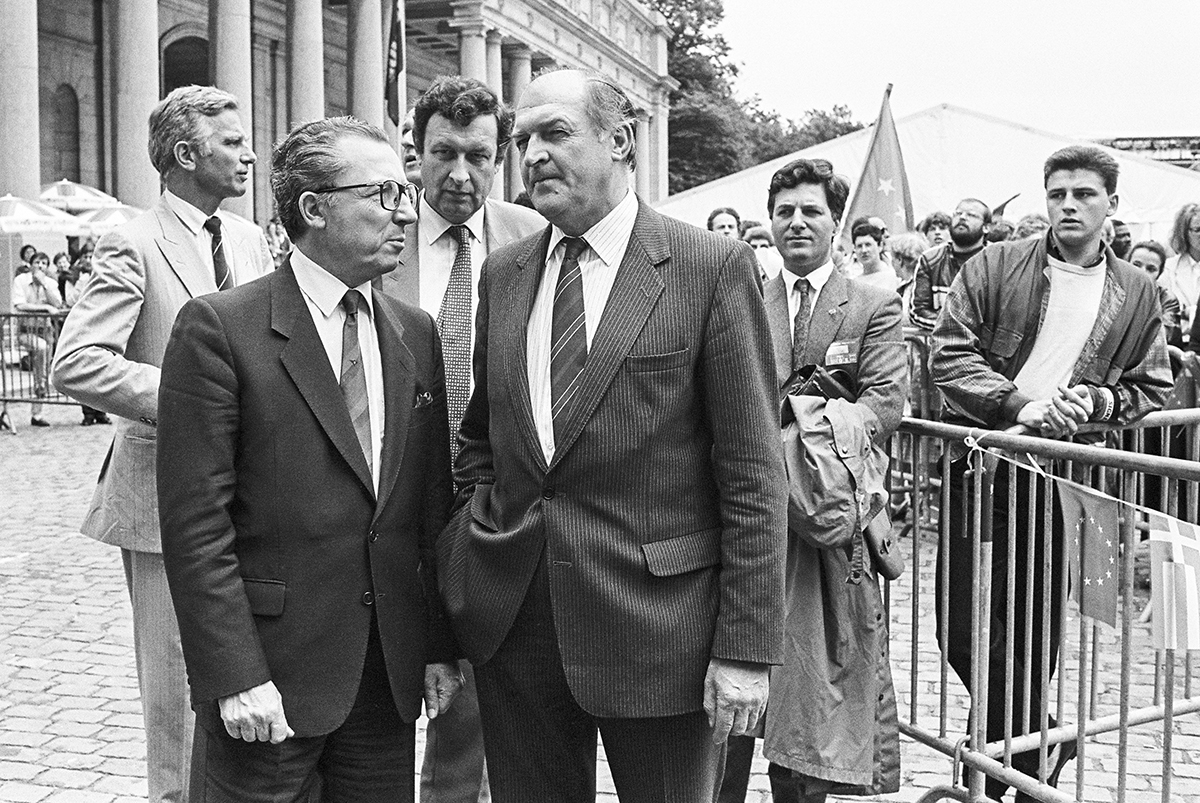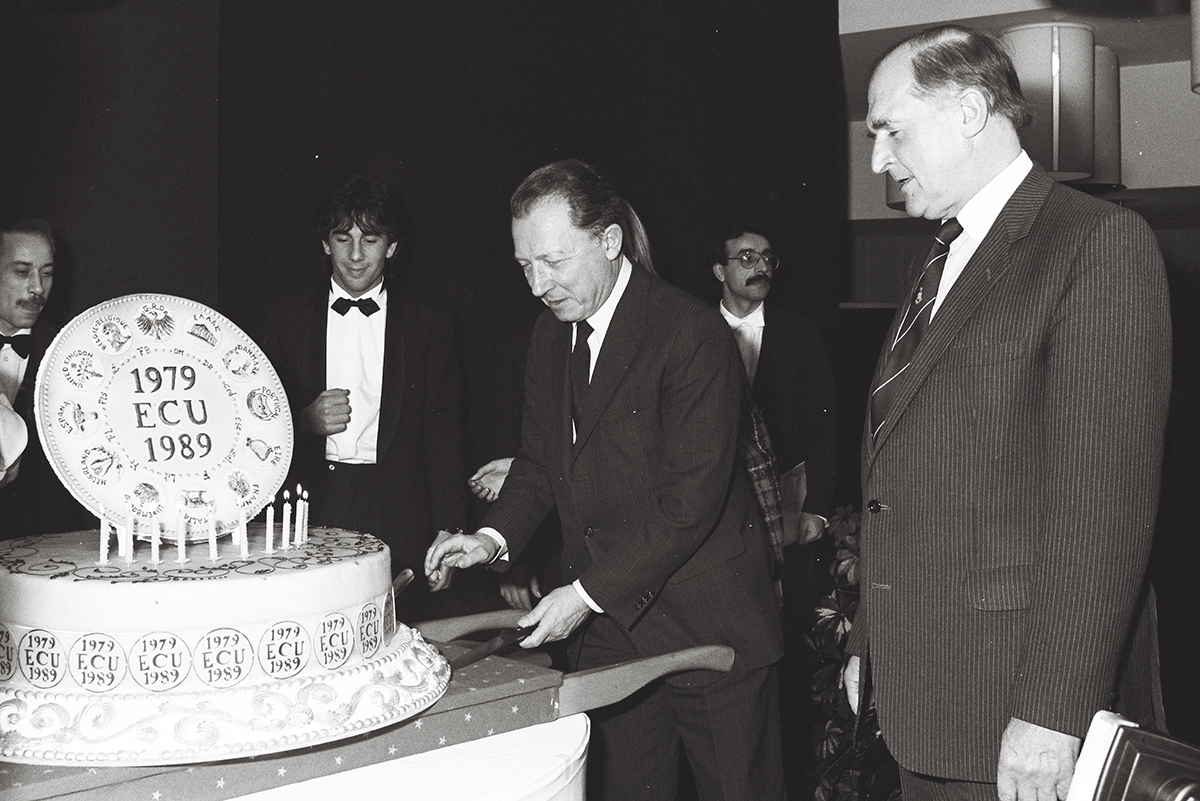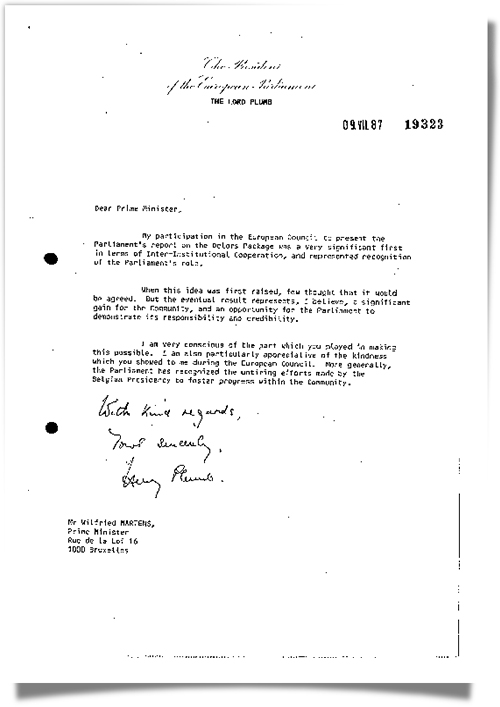The ‘Plumb-Delors Agreement’
After the adoption of the Single European Act (SEA), the European Parliament was more successful in promoting its position through informal but politically binding institutional agreements. The European Parliament strategically used interinstitutional agreements as instruments to wrest competencies from the Council and the Commission.
The European Parliament considered it necessary to have greater and more effective practical control over the way in which the Commission carried out its executive powers. As of 14 March 1988, the European Commission, acting through its President Jacques Delors, and the Parliament, represented by Lord Plumb, agreed that the Commission would provide Parliament with all the essential information about Comitology committees.
 European festivities in Brussels. L-R: Jacques Delors, Lord Plumb © European Communities 1987
European festivities in Brussels. L-R: Jacques Delors, Lord Plumb © European Communities 1987
In the "Plumb-Delors Agreement", the Commission committed itself to forwarding all draft implementing acts of a “legislative nature” to the Parliament “for information” at the same time as they were forwarded to the implementation committee. Exceptions were made for “routine management documents with a limited period of validity or of altogether minor importance and documents whose adoption is complicated by considerations of secrecy or urgency.”
European Parliament and the Council
Defining the institutions’ roles between comitology and the Single European Act.
Most commentators identify the beginning of comitology in the management committees formed in the 1960s to give effect to the Common Agricultural Policy. The practice quickly spread, however, into other fields of activity under the European Community (EC) Treaty. The number of committees, with different structures and procedures, increased. The Single European Act would clarify the legal position regarding the delegation of implementing powers. It amended Article 145 of the EC Treaty by adding a general requirement for the Council to confer implementation powers on the Commission.
A declaration annexed to the Single Act called on the Community institutions to adopt, before the Act entered into force, "the principles and rules on the basis of which the Commission's powers of implementation will be defined in each case". This led to the Council decision of 13 July 1987 laying down the procedures for the exercise of implementing powers conferred on the Commission (also known as the 1987 Decision) and sought to simplify matters by limiting the types of procedures to be used. Even so, the position as regards the number and types of committees remained somewhat complicated.
 10th anniversary of the European Currency Unit (ECU) in Strasbourg, January 1989. L-R: Jacques Delors, Lord Henry Plumb © European Communities
10th anniversary of the European Currency Unit (ECU) in Strasbourg, January 1989. L-R: Jacques Delors, Lord Henry Plumb © European Communities
Except for a requirement to be consulted prior to the adoption of any decision under Article 145(3) of the EC Treaty, neither the Single European Act nor the 1987 Decision gave any active role to the European Parliament in the comitology process. The SEA was in fact undermined by the Council’s 1987 Decision, in which the Member States indicated their intention not to loosen their control over the implementation process. The Decision gave rise to a bitter interinstitutional dispute, including a formal challenge to its legality by the European Parliament in the European Court of Justice. Parliament sought relief, but failed to convince the Court to recognise its capacity to bring an action for annulment.
The opening address at the European Council on behalf of the elected Parliament
Lord Plumb was the first President of the European Parliament ever to attend a meeting of the European Council presenting the Parliament’s view in the European Council. For the first time, the European Council (held in Brussels from 29 to 30 June 1987) was addressed by the President of the European Parliament before the opening of its proceedings.

Letter: review of President Plumb's participation in the European Council (Download the document here)
